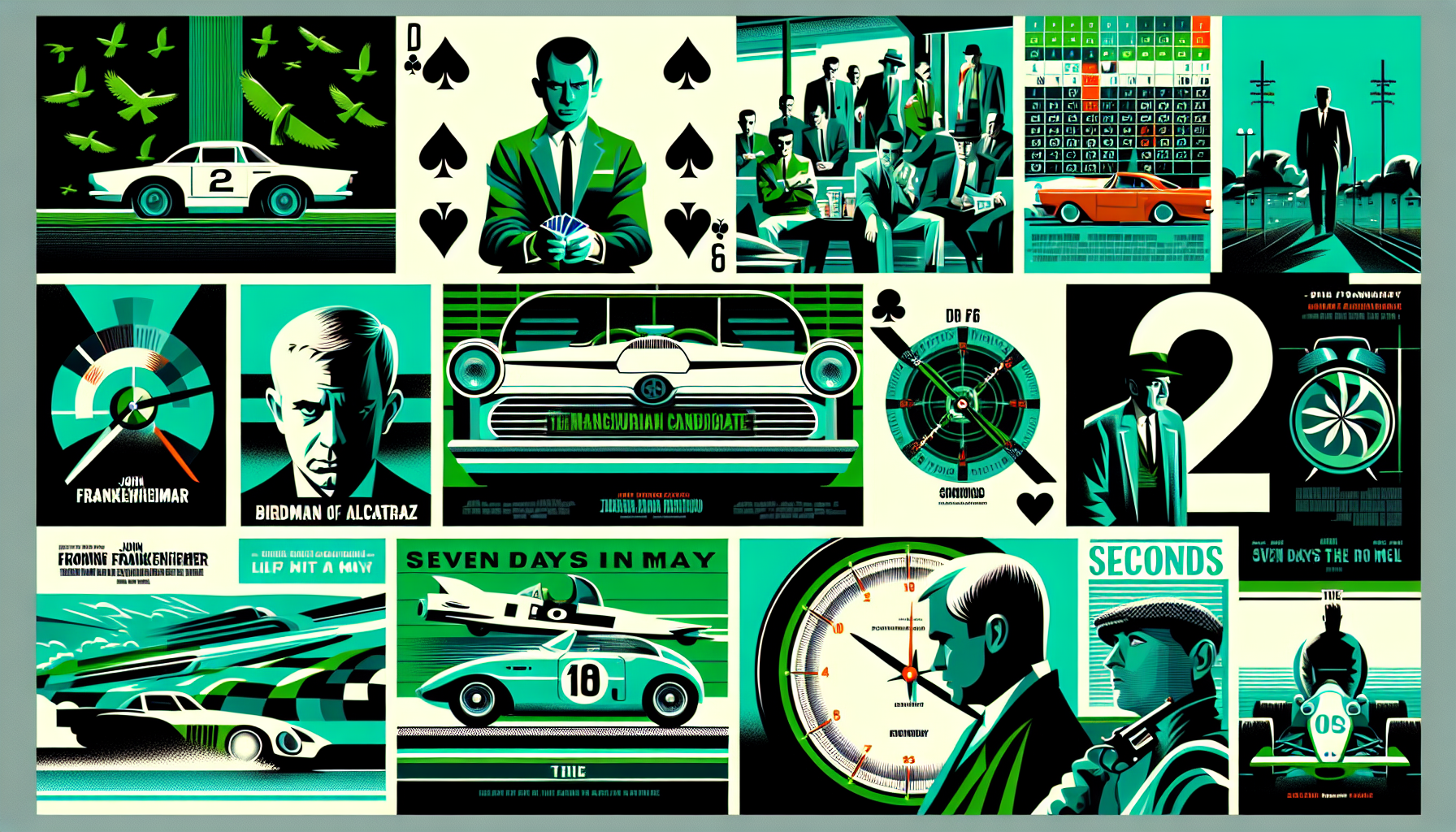John Frankenheimer John Frankenheimer had one of the best short runs for a director I can think of. From 1962 to 1966 he made Birdman of Alcatraz, The Manchurian Candidate, Seven Days in May, The Train, Seconds, and Grand Prix....
Why it matters
- John Frankenheimer's contributions to cinema during the early 1960s helped shape the political thriller genre.
- His films often explored complex themes of identity, morality, and the consequences of power.
- Frankenheimer's innovative techniques and storytelling methods have influenced generations of filmmakers.
John Frankenheimer, an American filmmaker revered for his intense and gripping narratives, experienced a prolific and influential period from 1962 to 1966 that showcased his immense talent. Within just five years, he directed a series of films that not only captivated audiences but also left an indelible mark on the history of cinema. During this brief yet remarkable span, he produced iconic titles such as *Birdman of Alcatraz*, *The Manchurian Candidate*, *Seven Days in May*, *The Train*, *Seconds*, and *Grand Prix*. Each of these films is distinct, yet they collectively exhibit Frankenheimer's unique approach to storytelling and visual style.
*Birdman of Alcatraz*, released in 1962, was a biographical drama that explored the life of Robert Stroud, a convict who became an expert in ornithology while serving time in prison. The film was notable for its intense character study and the ethical dilemmas it presented, showcasing Frankenheimer's ability to delve deep into the human psyche. Burt Lancaster's portrayal of Stroud earned him an Oscar nomination, highlighting the film's critical acclaim and the director's skill in eliciting powerful performances from actors.
Following this success, Frankenheimer directed *The Manchurian Candidate* in 1962, a political thriller that remains culturally significant to this day. The story revolves around brainwashing, manipulation, and the sinister aspects of political power, themes that resonate strongly in contemporary discussions about politics and media. Frank Sinatra, Angela Lansbury, and Laurence Harvey delivered unforgettable performances, and the film's chilling narrative, combined with Frankenheimer's innovative direction, set a new standard for the genre.
In 1964, Frankenheimer released *Seven Days in May*, another political thriller that tackled themes of conspiracy and military overreach. The film depicted a military coup in the United States and was highly relevant during a time of political turmoil. Its prescient themes and sharp dialogue reflected the anxieties of the era, and Frankenheimer’s ability to balance suspense with social commentary established him as a master of the genre.
*The Train* (1964) marked a shift in Frankenheimer's style, as he ventured into the realm of war films. Set during World War II, the film tells the story of a French railway inspector who attempts to prevent the Nazis from stealing priceless art. The film is notable for its intense action sequences and the director's use of real trains, showcasing his commitment to realism. The film's thrilling narrative and technical achievements further solidified Frankenheimer's reputation as a filmmaker willing to push boundaries.
In 1966, Frankenheimer released *Seconds*, a psychological thriller that explores themes of identity and existentialism. The film tells the story of a middle-aged man who undergoes a surgical procedure to assume a new life. Its surreal and disorienting style, coupled with a haunting score, made it a standout piece in Frankenheimer's oeuvre and a precursor to the psychological dramas that would emerge in later decades.
Lastly, *Grand Prix* (1966) showcased Frankenheimer’s prowess in capturing high-octane action and the world of motorsport. The film was groundbreaking for its use of innovative cinematography and editing techniques, immersing viewers in the thrilling and dangerous world of Formula One racing. The film not only appealed to car enthusiasts but also garnered critical acclaim for its visual storytelling.
John Frankenheimer's brief but intense career in the 1960s illustrates a pivotal moment in American cinema. His films addressed pressing social issues, blended genres, and introduced bold visual storytelling techniques. As a director, his ability to create complex characters and explore dark themes resonated with audiences, making him a key figure in the evolution of modern filmmaking. Today, his work continues to inspire filmmakers and remains relevant in discussions about the power of cinema to reflect society's fears and aspirations.











